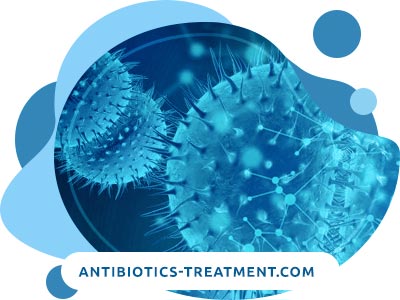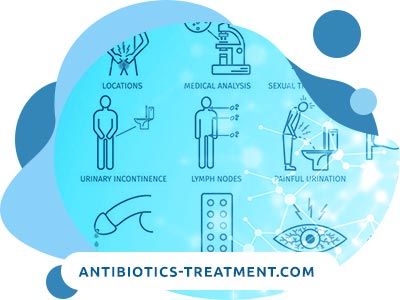General Overview:
Gonorrhea, also known as the "Clap" is a sexually transmitted disease (STDs) caused by the bacteria, "Neisseria Gonorrhoeae." this bacterial infection is one of the oldest known sexually transmitted diseases. Neisseria Gonorrhea can infect both females and males.
The bacterium Neisseria Gonorrhoeae affects the throat, rectum, urethra in both male or female. Not only this, but the infection can also spread to the cervix of the females. There are chances of the baby to get infected with Gonorrhea during childbirth if the mother’s cervix is infected. Gonorrhea can affect the eyes of the babies during childbirth.

This infection is very common and mostly the infected person does not show any signs & symptoms. The most common cause of Gonorrhea infection is engaging in sexual contact with multiple partners and not using a condom. To prevent the spread of Gonorrhea, people are advised to use condoms during sex and keep a mutually monogamous relationship.
Symptoms and Warning Signs:
As Gonorrhea is a common infection, therefore it does not show any signs or symptoms usually. But the symptoms and signs of this sexually transmitted infection varies according to the infected site/region of your body.
Neisseria Gonorrhoeae can infect multiple sites of the human body including the genital tract, rectum, eyes, throats or joints, but Gonorrhea commonly affects the genital tract in both males & females.
Signs When Genital Tract is Affected by Gonorrhea:
When the bacterium Neisseria Gonorrhoeae causes infection in the genital tract the signs and symptoms different for males and females. The infection shows more signs and symptoms in females as compared to males.
Signs and symptoms of Gonorrhea infection affecting the genital tract in females includes:
- Increased or excessive vaginal discharge.
- Yellowish vaginal discharge.
- Painful urination or irritation/burning sensation during urination.
- Abdominal or pelvic pain.
- Painful intercourse.
- Frequent urination.
- Redness and swelling of the genitals.
- Itching or burning in the vaginal area.
- Vaginal bleeding between periods
- Vaginal Bleeding after vaginal intercourse.
Signs and symptoms of Gonorrhea infection in males, when it affects the male genital tract, includes:
- Painful urination.
- Pus-like or yellowish discharge from the tip of penis.
- Itching and burning near penis.
- Swelling or pain in any of the one testicle.
Signs and Symptoms of Gonorrhea Affecting Other Sites of the Body:
The symptoms of Gonorrhea when it affects the other sites of the body are common for both females and males. The signs and symptoms of gonorrhea affecting the different sites of the body are as follows:
- Throat: Sore throat along with swollen lymph nodes in the neck region.
- Rectum: Anal itching, pus-like or yellowish discharge from the rectum, spots of blood, and bleeding during the bowel movements.
- Joints: Warm, red and swollen joints cause extreme pain when moved.
- Eyes: Eye pain, pus-like discharge from one or both eyes, light sensitivity.
Causes and Risk Factors of Gonorrhea:
Gonorrhea infection is caused by the bacteria Neisseria Gonorrhoeae which is transmitted from one person to another person through sexual contact. It can spread through vaginal, anal, as well as oral intercourse. People who are engaged in sexual contact with multiple persons are more likely to have Gonorrhea. Unprotected intercourse is one of the major reason of the spread of Gonorrhea.
Risk factors that can increase the risk of Gonorrhea includes:
- Sexual contact at young age.
- New sex partner.
- Multiple sex partners.
- A sex partner having concurrent sex partners.
- Previous history of gonorrhea.
- Any previous or current diagnosis of other sexually transmitted diseases like syphilis etc.
Why is Important to Get Treatment for Gonorrhea?
Although gonorrhea is a common sexually transmitted infection but it can cause several complications for both the infected persons as well as for the baby, if born from the infected mother. If gonorrhea remains untreated it lead to significant complications which includes:
- Female Infertility: When gonorrhea remains untreated the infection spreads to the uterus as well as to the fallopian tubes of the female reproductive system. And it causes inflammation in pelvic regions known as "Pelvic Inflammatory Disease (PID)". Pelvic inflammatory disease can cause scarring of the fallopian tubes which increases the risk of infertility and pregnancy complications.
- Male Infertility: Not only females, but gonorrhea can also cause infertility in the males, if it is not properly treated. In men, untreated gonorrhea can cause epididymitis, inflammation of epididymis, a small coiled tube in the testicle near the sperm ducts. If it remains untreated it can lead to infertility.
- Increased Risk of HIV Aids: Persons infected with Gonorrhea are more susceptible to Human Immunodeficiency Virus (HIV) which can cause AIDS.
- Severe Arthritis and Other Joint Problem: if left untreated, the bacterium Neisseria Gonorrhoeae spread through bloodstream to the joints and other parts of the body. It causes fever, rash, skin sores, pain, swelling and stiffness of joints.
- Pregnancy and Babies Complications: Untreated Gonorrhea can cause severe complications in the pregnancy. The babies who are born from the infected cervix also gets infected. The babies can develop eye infections, sores on the scalp, and other infections during childbirth.
When to See Your Doctor?
If your partner has been recently diagnosed with Gonorrhea or has a history of infection you must see your doctor to ensure you are not experiencing the infection. Also, if you have recently been engaged to a new partner you may also need to see a doctor.
If you experience or notice any signs or symptoms such as pus like discharge, painful urination, burning and itching near genitals or bleeding from vagina or rectum you should seek medical treatment immediately. It is very important to go for regular checkups to ensure you are not affected by the infection.
Without proper treatment, people are likely to get re-infect with the infection and can also pass the infection to other people as well.
Diagnosis for Gonorrhea:
To diagnose Gonorrhea, your doctor may require the sample of your body cells. You doctor may require the sample of your cells either by:
Urine Test: To analyse the presence of bacterium in the urethra.
Swab of affected area: Sample/swab from throat, rectum, vagina or rectum to identify the bacterium in these area.
Sometimes the doctor may require sample of both urine and swab to identify whether you are infected with Gonorrhea or not.
Home test kits for Gonorrhea are available for women so that they can self test their vaginal swab at home. Once the swab is collected from the vagina, the samples can be sent to the specified labs for testings. The results can be collected personally, delivered to your home or you may also get results through a message or email.
Treatment for Gonorrhea:
Treatment and medications for Gonorrhea are available. But the treatment and medication of the infection may differ for adults and babies, because the bacterium affects the babies and adults differently at different sites of the body.
Treatment for Adults:
In adults, the gonorrhea infection is treated with antibiotics. The strains of Neisseria Gonorrhoeae, can develop drug resistance, therefore the Centers for Disease Control & Prevention recommended to treat the uncomplicated Gonorrhea only with the antibiotic "Ceftriaxone". This antibiotic should be given as an injection.

Ceftriaxone is given in a combination with either the antibiotics "Doxycycline (Monodox, Vibramycin or others) or "Azithromycin (Zithromax, Zmax). These two antibiotics must be taken orally.
Researches have also shown that oral gemifloxacin also known as Factive or injectable gentamicin in combination with the azithromycin have shown high success in treating Gonorrhea infection. This combination of antibiotics is usually used for people who are allergic to ceftriaxone or other cephalosporin antibiotics.
Treatment for Infected Babies:
Usually, the babies who are born from the mother infected with gonorrhoea, may develops eye infection when contracted through infected cervix. Therefore medication is given to them immediately after their birth to prevent the development of the infection. If an eye infection still develops, antibiotic eye drops are used for treating the infection.
Check-up and Treatment for Partners:
If you are diagnosed with the infection your partner should also get tested for the infection as well as require to receive the same treatment as you are receiving. Even if he/she does not experience or notice any signs or symptoms of the infection. This is done to avoid or prevent the reinfection.
Prevention for Gonorrhea:
Gonorrhea and other sexually transmitted diseases can be prevented with the precautions and preventions. There are few precautions that can help you to avoid the infection caused by the bacterium Neisseria Gonorrhoeae.
Following steps or precautions may help you to reduce the risk of the Gonorrhea Infection:
- Always use a condom during sex: gonorrhea is a sexually transmitted disease therefore, it is recommended to use condoms whenever you are engaging in any type of sexual contact, whether its oral, vaginal or anal sex. Unprotected sex is one of the major reasons for the spread of Gonorrhea.
- Get Your Partner and Yourself Tested for the STDs: Before engaging in a sexual contact make sure that neither of you nor your partner has any STDs.
- Avoid/Abstain from Having Sex with Anyone Showing Unusual Symptoms: if your partner is experiencing or showing any unusual symptoms such as pus-like discharge, genital itching or rash avoid getting sexual contact before he/she gets treatment.
- Regular Screening for Gonorrhea and Other STDs: Doctor have recommended Annual screening for Gonorrhea and other sexually transmitted diseases for every sexually active women who is under 25 years. Older women who have high risk of getting the infection are also required to get annual screening for the STDs. not only women, men should also undergo an annual screening for the STDs.
 AU
AU UK
UK CA
CA DE
DE FR
FR IT
IT ES
ES






